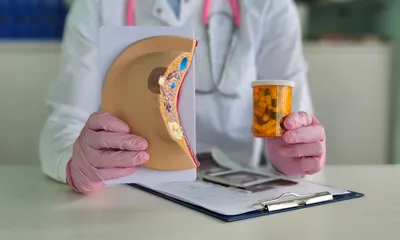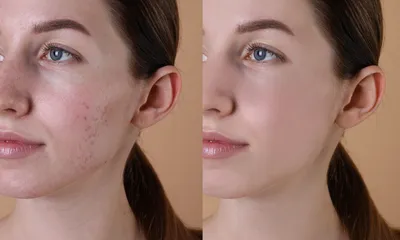How to Boost Thyroid Health

The thyroid gland is a small butterfly-shaped gland located at the front of your neck. Its importance to the human body is often underestimated, and many people aren’t even aware that the thyroid exists until problems arise.
Despite often being overlooked, the thyroid plays a significant role in various natural bodily processes, including metabolism, body temperature regulation, the menstrual cycle, and digestive function. It also affects heart rate, blood pressure, circulation, normal child development, brain function, mood, and more. The thyroid achieves this by producing two primary hormones, thyroxin (T4) and triiodothyronine (T3). However, just like any other organ, it can become weakened and may require support to function properly.
This article will give you a quick overview of the most common thyroid disorders. You will also learn how to address these health issues and boost thyroid health.
Common Thyroid Disorders
Thyroid health is influenced by various factors, including genetics, nutrition, stress levels, age, gender, pregnancy, environmental toxins, and medications. Several common conditions can affect the thyroid, of which hypothyroidism is the most common. Since this condition causes the thyroid not to produce enough of its main hormones (thyroxin (T4) and triiodothyronine (T3)), it’s also called an underactive thyroid. It’s associated with symptoms like fatigue, weight gain, cold intolerance, dry skin, constipation, depression, and memory problems. Hypothyroidism is most often caused by the autoimmune disease Hashimoto’s thyroiditis, which gradually reduces thyroid function.
In contrast, the second most common thyroid condition is hyperthyroidism (overactive thyroid). This condition occurs when the thyroid produces excess hormones and is often caused by Graves’ disease. Like Hashimoto’s thyroiditis, Graves’ disease is an autoimmune disease attacking the thyroid. Symptoms include weight loss, anxiety, insomnia, tremors, heat intolerance, and rapid heartbeat. While the above are the most common thyroid conditions, thyroid nodules, goitre, or thyroid cancer can also occur.
How to Boost Thyroid Health
There are several steps you can take in your everyday life to boost thyroid health. As with many things, it starts with your diet, which should include enough iodine from sources such as seaweed, iodized salt, dairy, or fish, since this mineral is essential for thyroid hormone production. Additionally, selenium from Brazil nuts, fish, or eggs can help the thyroid convert T4 hormone into active T3, which can be used by the body immediately. Zinc from meat, shellfish, and legumes can also support your hormone metabolism. Additionally, avoiding thyroid stress and extreme diets, like very low-calorie or otherwise restrictive nutritional regimens, can be beneficial.
Apart from diet, effective stress management, a consistent sleep schedule, regular physical exercise, and avoiding excessive iodine and exposure to harmful substances (like BPA from plastics or certain pesticides) can all help boost thyroid function and proper hormone regulation.
However, it’s crucial to note that while these measures can help support normal thyroid function and promote overall hormonal balance, they should only be used in people without a thyroid disorder or alongside medications to manage thyroid conditions effectively.
The most suitable medical treatments to boost thyroid health and reduce symptoms depend on the type and severity of the thyroid condition, which are often diagnosed through blood tests evaluating TSH, T4, and T3 levels.
Patients with hypothyroidism are typically treated with thyroid hormone replacement therapy, using synthetic T4 hormones to supplement the hormones the body can’t make itself. Levothyroxine is the most commonly used medication, although some patients will be prescribed other drugs, such as liothyronine. When Hashimoto’s Thyroiditis is the cause of hypothyroidism, it’s usually managed the same way but requires closer monitoring.
Hyperthyroidism and Graves’ disease are mainly treated with so-called antithyroid medications like methimazole to reduce excess hormone production. Additionally, radioactive iodine therapy can help destroy overactive thyroid cells, while beta-blockers may help patients manage symptoms like rapid heartbeat, tremors, and anxiety. In some cases, the surgical removal of all or part of the thyroid may be necessary.
For patients with thyroid cancer, the surgical removal of the thyroid gland is common. This is often combined with radioactive iodine therapy to destroy any remaining thyroid tissue or cancer cells after surgery and lifelong thyroid hormone replacement with levothyroxine. In more advanced cases, chemotherapy, radiation or other targeted therapies may be needed.
IMPORTANT NOTE: The above information is intended to increase awareness of health information and does not suggest treatment or diagnosis. This information is not a substitute for individual medical attention and should not be construed to indicate that use of the drug is safe, appropriate, or effective for you. See your health care professional for medical advice and treatment.


